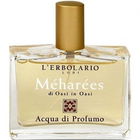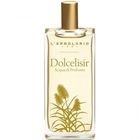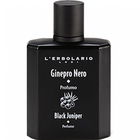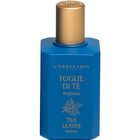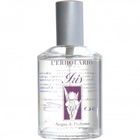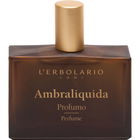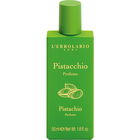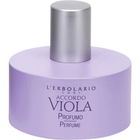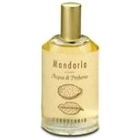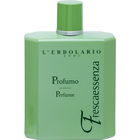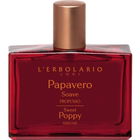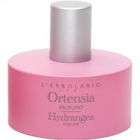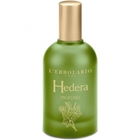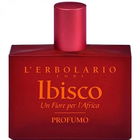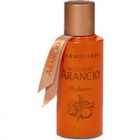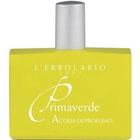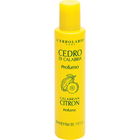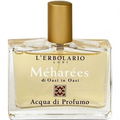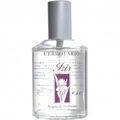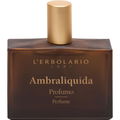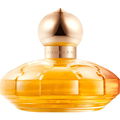Trying out a new fragrance is always exciting for me. This time even more so. Because my test subject is said to release positive energies. How it does this and where it gets them from is not revealed. However, there is one hint: The fragrance in question is Albero di Giada by L’Erbolario Lodi. This is the jade tree (Portulacaria afra), also known as the money or penny tree, which almost everyone knows. The plant with its thick trunk made of soft wood is indeed a true African, but is increasingly popular here as a bonsai or indoor ornamental plant. In autumn, the little tree adorns itself with small, white, star-shaped flowers. According to the manufacturer, their essence is included in the perfume.
The succulent, also known as the shilling tree, was attributed special significance in ancient times: As a houseplant, it is said - if it thrives - to bring prosperity, happiness, and financial blessings.
I just applied a bit of liquid from my sample vial - and now I’m waiting for happiness and prosperity to come my way. Until then, I let the pleasant new fragrance work on me. The first impressions are - interesting. At first, the scent seems a bit synthetic to me - or at least quirky. Different fragrance notes unfold, but they seem to be more in a struggle for dominance rather than entering into a harmonious symbiosis. This is somewhat irritating to me. Because at one moment the fragrance appears to be quite sweet, then the green, fresh element pushes to the forefront. Aha, leaves and grasses are the leitmotif of this scent …! But hardly have I found this Ariadne's thread through the labyrinth, it suddenly becomes - surprise, surprise - very citrusy. Quite strikingly citrusy, in fact. For me, this citrus note does not come from the bergamot, which is supposedly also included in the fragrance bouquet, but from the verbena, the vervain, which was already used in religious myths in ancient times. So it is not the cheerful, light, fruity aroma of bergamot that we are dealing with here, but rather a more "herbaceous" smelling lemon. Bergamot, on the other hand, is only present in the background, without developing a strong presence.
The yellow rose briefly passes by, smiles a more whispered hello - and then disappears again. Unfortunately, unfortunately … Because it was wonderfully soft and of graceful sweetness. The white tea is even harder to discern. I appreciate this scent, but for this fragrance blend, it is probably too weak to be noticed at all. I don’t know what the flowers of the jade plant smell like. However, I think that this olfactory conglomerate of green grasses and fresh leaves could owe its existence to them. Amber I only recognize here as a kind of "accompanying ingredient" that does not develop a real life of its own.
What remains from all of this is the duality between green notes and the citrus freshness of verbena. The two are, so to speak, vying for priority. Ultimately, the green notes prove to be more long-lasting. The impression of an elegant, soapy to creamy fragrance solidifies, making its wearer appear well-groomed and clean.
No doubt, the fragrance "has something"; it is appealing, I like to sniff after it because it makes me curious. But something seems to be off with the construction, the fragrance pyramid. The scent feels "unfinished" to me. It does not tell a coherent story in its progression. It wanders a bit, as if searching for itself or a way out of the chaos. Such a thing can be exciting. Here, however, it is rather irritating because the fragrance, as I perceive it, wants to be harmonious, gentle, soft, lovely, graceful, feminine. It conveys this most strongly when the yellow rose briefly stops by again.
Just as the shilling tree is not native to us, the fragrance also reveals itself to be somehow foreign - a beautiful Chinese princess from a fairy tale, precious in colorful silk, interesting, appealing, but also distant and cool - without her perhaps wanting to be that way. And so we all wait for a happy ending: the Chinese princess with a penchant for harmony, me as a confused user, and many others with us probably feel the same. We wait for Giada 0.2, which will fulfill all promises and tell the promising story to the end. Of course, we wish for a happy ending, where everything resolves in harmony and cheerfulness. But until then, it seems to be a long way off. Therefore, we would even be satisfied with some kind of ending, even if it is not quite as happy as we would like it to be.
All of this brings me to the question: For whom is this perfume intended, when could one wear it? Well, I wouldn’t use it for business meetings. It has too much of a fairy tale quality - however, the fantastical does not necessarily come from delicate romance, but rather from a manga with bright colors - which is also reminiscent of the striking green of the packaging and bottle. Seen this way, the fragrance is by no means retro or nostalgic. However, it runs out of breath too quickly. In the end, only the impression of something indefinably creamy, slightly sweet, which appears well-groomed and discreet, remains, but it remains diffuse, as if it could or would not decide. I miss the personality in this veil dance.
Although the fragrance has strong citrus accords, I do not necessarily see it as a refreshing summer scent. I would perhaps wear it at the end of summer and in early autumn. But I am currently not at all decided on purchasing this fragrance water. It has too little substance for me. I already own a relatively distinctive fragrance from L’Erbolario that I find interesting: Ambraliquida. I like it best shortly after spraying when it unfolds powerfully. However, like the Albero di Giada, the Ambraliquida also has disappointingly short longevity. Therefore, I will probably not repurchase the fragrance.








 Vervain
Vervain White tea
White tea Yellow rose
Yellow rose Bergamot
Bergamot Jade vine
Jade vine Amber
Amber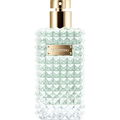





 Jazzy76
Jazzy76 Pollita
Pollita Floyd
Floyd Andrula
Andrula Ergoproxy
Ergoproxy DasCroe
DasCroe Hasiputz80
Hasiputz80 Peachess
Peachess MlleJeanne
MlleJeanne Scia
Scia